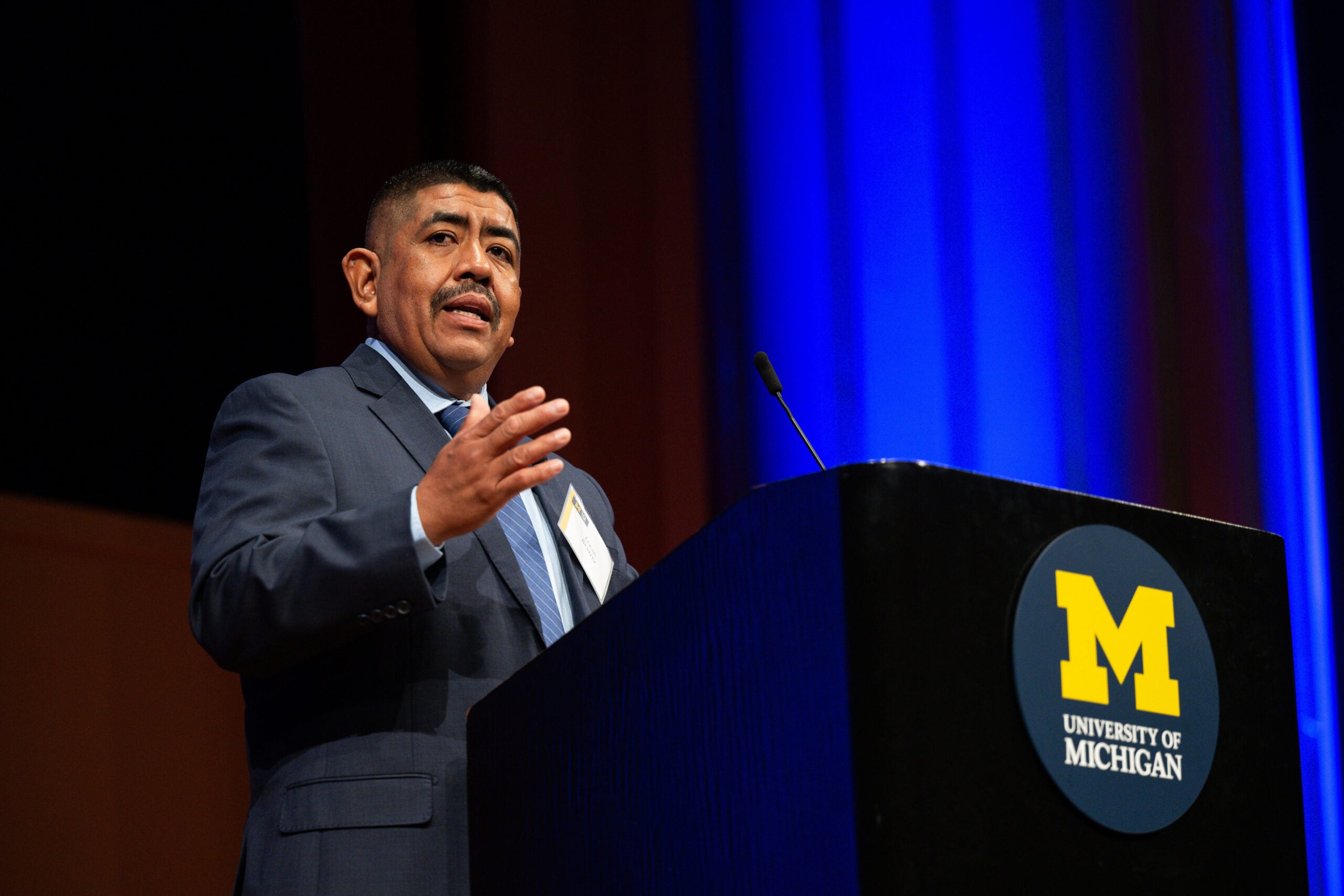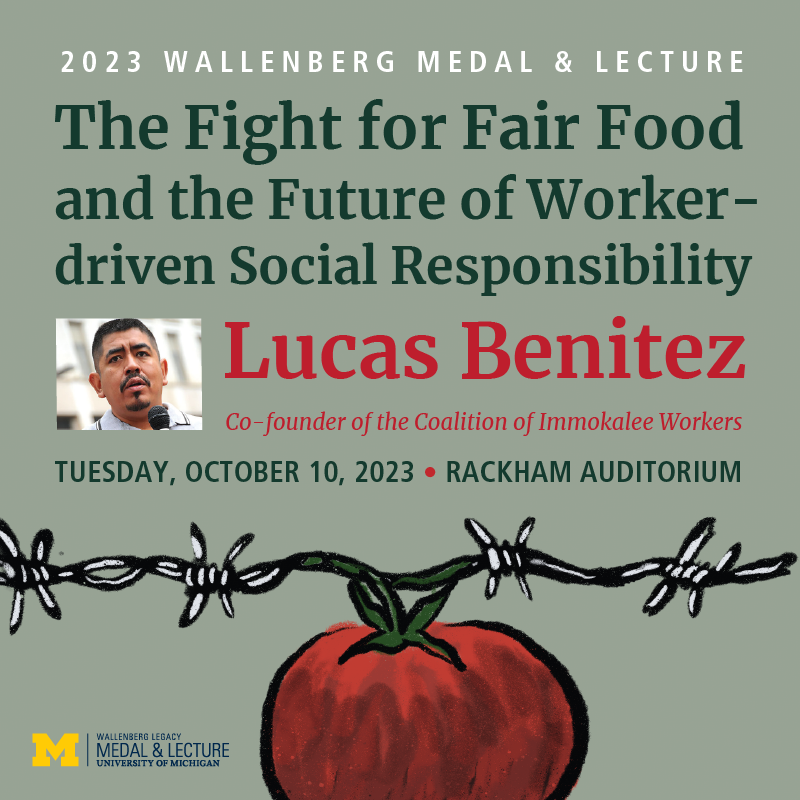Lucas Benitez, farmworker leader, awarded the 2023
Wallenberg Medal
Lucas Benitez, a co-founder of the Florida-based labor and human rights organization the Coalition of Immokalee Workers (CIW) and a key organizational leader and member of the CIW’s Fair Food Program worker education team, received the 2023 Wallenberg Medal from the University of Michigan on October 10, 2023 at 7:30pm in Rackham Auditorium.
Born in Guerrero, Mexico, Mr. Benitez migrated at the age of 17 to Immokalee, Florida where he worked in the tomato fields. Working conditions, including poor wages, long hours, and a climate of intimidation and violence, prompted him to act and eventually to help found the Coalition of Immokalee Workers. Since it was founded in 1993, the CIW has used a range of strategies to raise awareness about working conditions for farmworkers and to advocate for their basic human rights. In addition to being one of the earliest farmworker leaders in the Fair Food movement, Benitez played a critical role in the investigation of several trafficking and slave labor cases, helping to free over 700 farmworkers in one case alone.
For his work with the CIW, Benitez has been called “one of the most visible farmworker leaders in the US” by the Los Angeles Times. On behalf of the Fair Food Program, Lucas Benitez traveled to the White House to accept the 2015 Presidential Award for Extraordinary Efforts to Combat Trafficking in Persons. Also on behalf of the Fair Food Program, he accepted the 2014 Clinton Global Citizen Award and the 2016 James Beard Leadership Award. Benitez has won numerous national and international awards, including the Rolling Stone Magazine Brick Award for “America’s Best Young Community Leader,” the US Conference of Catholic Bishops’ Cardinal Bernardin New Leadership Award, and, along with two co-workers, the Robert F. Kennedy Human Rights Award.
“Lucas Benitez’s work with the CIW reflects the ongoing need for frontline advocates for vulnerable people in our society. This movement harnesses the economic influence of consumers to improve working conditions, labor practices, and pay for farmworkers through its worker-led, market-enforced approach to the protection of human rights underlying corporate supply chains,” said Sioban Harlow, Professor Emerita of Epidemiology and Global Public Health and chair of the Wallenberg Medal Selection Committee.
The Wallenberg Medal and Lecture honors the legacy of Raoul Wallenberg who graduated from U-M’s College of Architecture in 1935 and saved the lives of tens of thousands of Hungarian Jews near the end of World War II. In 1944, at the request of Jewish organizations and the American War Refugee Board, the Swedish Foreign Ministry sent Wallenberg on a rescue mission to Budapest. Over the course of six months, Wallenberg issued thousands of protective passports and placed many thousands of Jews in safe houses throughout the besieged city. He confronted Hungarian and German forces to secure the release of Jews, whom he claimed were under Swedish protection, and saved more than 80,000 lives.
Administered by the University’s Donia Human Rights Center, U-M awards the Wallenberg Medal to those who, through their actions and personal commitment, perpetuate Wallenberg’s extraordinary accomplishments and human values, and demonstrate the capacity of the human spirit to stand up for the helpless, to defend the integrity of the powerless, and to speak out on behalf of the voiceless.
The Wallenberg Medal and Lecture ceremony is free and open to the public. Tickets are not required. Please direct any inquiries about the event and requests for event accommodations to wallenberglecture@umich.edu or 734-936-3973.
Housed within the International Institute’s Donia Human Rights Center, a member of the International Institute, the Wallenberg Medal and Lecture is supported by the Wallenberg Endowment, which was established in 1985. The Donia Human Rights Center is a forum for intellectual exchange on issues around human rights among scholars, practitioners, students, and the broader public. We aim to promote deeper understanding of human rights issues in the contemporary world and to equip our constituents with the tools to tackle challenging human rights problems around the world.
The International Institute brings together distinguished and diverse faculty and scholars with deep area studies and international expertise to enrich the university’s intellectual environment and provide the U-M community with the knowledge, tools, and experience to become informed and active global citizens. We advance this mission through education, engagement, and innovation.


